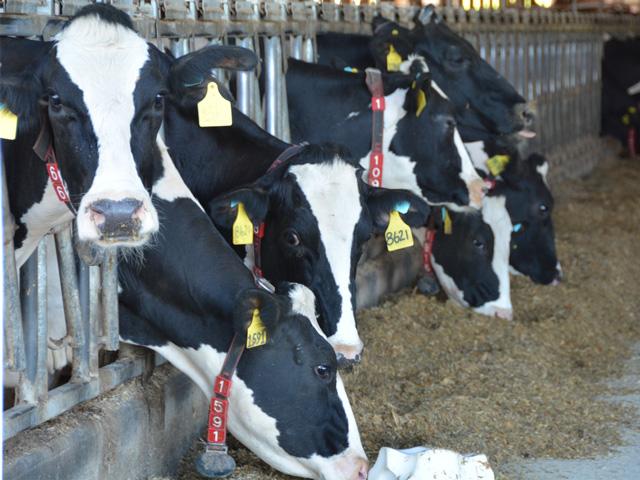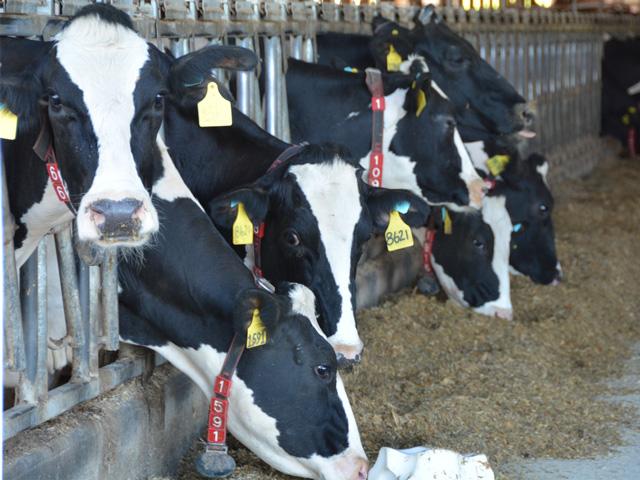Ag Policy Blog
Groups Find Ways to Milk FDA Guidance Over Plant-Based Products Sold as Milk
The email box filled up Wednesday over FDA's draft recommendations involving plant-based foods that are marketed and sold as "milk."
A lot of the emails revolved around these plant-based products using the term "milk."
U.S. Sens. Tammy Baldwin, D-Wis., and Jim Risch, R-Idaho, issued a bi-partisan statement in which they "slammed" FDA for allowing dairy terms for these products. The FDA's draft guidance, "Labeling of Plant-based Milk Alternatives and Voluntary Nutrient Statement," allows plant-based products to continue to use dairy terms despite not containing dairy, nor having the nutritional value of dairy products, the senators noted.
"America's dairy farmers work hard to produce second-to-none products with the highest nutritional value, and plant-based products should not be getting away with using their good name," Baldwin and Risch wrote. "This misguided rule will hurt America's dairy farmers and our rural communities. Since the FDA is failing to enforce its own definitions for dairy terminology and stop imitation products from deceiving consumers, we will be reintroducing our DAIRY PRIDE Act to stand up for America's dairy farmers and the quality products they make."
The FDA draft guidance keeps using the term "milk" for these plant-based milk alternatives (PBMA), but recommends "voluntary nutrient statements" for the labeling of some plant-based milk alternatives to highlight to consumers the difference between dairy products and PBMA products.
"Today's draft guidance was developed to help address the significant increase in plant-based milk alternative products that we have seen become available in the marketplace over the past decade," said FDA Commissioner Robert M. Califf, M.D. "The draft recommendations issued today should lead to providing consumers with clear labeling to give them the information they need to make informed nutrition and purchasing decisions on the products they buy for themselves and their families."
FDA pointed to the increasing variety of products including "soy, rice and almond to include cashew, coconut, flaxseed, hazelnut, hemp seed, macadamia nut, oat, pea, peanut, pecan, quinoa and walnut-based beverages." All of them involved plant extracts in some form but are called "milk."
FDA wants these alternative proteins to provide voluntary nutritional statements detailing how their products compare with dairy milk, based on USDA's fluid-milk criteria for nutrient substitutes. For example, FDA pointed out, the label could say, "Contains lower amounts of Vitamin D and calcium than milk."
P[L1] D[0x0] M[300x250] OOP[F] ADUNIT[] T[]
FDA defended not making changes to the word "milk," stating that more than 13,000 comments back in September 2018 showed "consumers generally understand" that PBMA products do not contain milk. "However, many consumers may not be aware of the nutritional differences between milk and PBMA products."
The milk guys – the National Milk Producers Federation – credited FDA with guiding companies that make plant-based beverages "to disclose their nutrient inferiority" and the FDA guidance also "acknowledges the public health concern of nutritional confusion over such beverages."
"Today's FDA announcement is a step toward labeling integrity for consumers of dairy products, even as it falls short of ending the decades-old problem of misleading plant-based labeling using dairy terminology," said Jim Mulhern, president and CEO of the NMPF. "By acknowledging both the utter lack of nutritional standards prevalent in plant-based beverages and the confusion over nutritional value that's prevailed in the marketplace because of the unlawful use of dairy terms, FDA's proposed guidance today will provide greater transparency that's sorely needed for consumers to make informed choices."
Yet, NMPF noted FDA's decision continues to permit PBMA beverages to continue using what has always traditionally been considered dairy terminology. "We reject the agency's circular logic that FDA's past labeling enforcement inaction now justifies labeling such beverages as 'milk' by designating a common and usual name. Past inaction is poor precedent to justify present and future inaction."
Offering their counter-argument, the plant-based advocates at the Good Food Institute saw the FDA's effort as recognizing that consumers understand the difference between plant-based milk and cow's milk. Still, the Good Food Institute complained that FDA was seeking to impose standards on PBMA products that are not required for dairy products.
"GFI supports commonsense labels that use terms consumers understand and themselves use. The government's role is to ensure a level playing field," said Madeline Cohen, GFI's senior regulatory attorney. "FDA should not impose de facto labeling requirements on plant-based milks while giving cow's milk a free pass."
Pointing out the FDA document was simply guidance, GFI disagrees that companies should be required to make a direct comparison between their PBMA products and cow's milk.
"The guidance is premised on the idea that consumers are somehow confused by plant-based milks' nutrition, despite the fact that FDA already requires key nutrients to be included on the Nutrition Facts panel," Cohen stated.
Internally, the FDA guidance also led to a spate of email office discussions about milk as well. As one senior DTN staffer described,
"As someone who had several generations of dairy farmers before me in my family, I just don't understand why these products get to be called 'milk.' Unless you are pulling some oat or nut teats, it's not milk. Milk doesn't come from plants. How hard is this?
Why not call it oat/nut juice? Is this any different than calling it 'milk'?
Chris Clayton can be reached at Chris.Clayton@dtn.com
Follow him on Twitter @ChrisClaytonDTN
(c) Copyright 2023 DTN, LLC. All rights reserved.





Comments
To comment, please Log In or Join our Community .